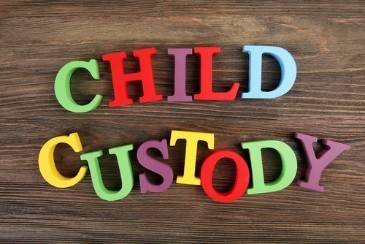Are you preparing for a divorce with children and have questions about the types of child custody there are (i.e. joint custody vs. full custody) in New York? Watch this video by experienced Jamestown divorce lawyer Scott Humble to learn more.
 I was in Family Court last week with an unusual case. The usual situation when people go through some kind of split or divorce is to go and have joint custody of the children, so both the mother and the father can go and make decisions as far as school, religion, medical, whatever the case may be. This particular case, when mulling over the types of child custody, the judge felt uncomfortable giving joint custody because the father is actually a California resident, and he has just moved here, and the judge doesn’t know if it’s temporary or not and was very concerned. He gave the mother full custody and only visitation to the father for that reason. That’s basically the difference. The father technically will get information as far as what’s going on at school, what’s going on as far as religion, what’s going on as far as medical, but he won’t be able to technically make the decisions or make a joint decision on that if the wife doesn’t want him to.
I was in Family Court last week with an unusual case. The usual situation when people go through some kind of split or divorce is to go and have joint custody of the children, so both the mother and the father can go and make decisions as far as school, religion, medical, whatever the case may be. This particular case, when mulling over the types of child custody, the judge felt uncomfortable giving joint custody because the father is actually a California resident, and he has just moved here, and the judge doesn’t know if it’s temporary or not and was very concerned. He gave the mother full custody and only visitation to the father for that reason. That’s basically the difference. The father technically will get information as far as what’s going on at school, what’s going on as far as religion, what’s going on as far as medical, but he won’t be able to technically make the decisions or make a joint decision on that if the wife doesn’t want him to.
The following are factors that go into determining child custody:
Judges and divorce attorneys will work to keep children together with their siblings, if at all possible. Assuming that a parent can demonstrate the financial ability to care for multiple children, it is likely that a child will be placed in the household where her or his siblings or half-siblings already live. Educational opportunities are also important, and a judge will probably order children to stay more frequently with the parent who lives closer to schools. The ability to be physically present to care for one’s children is especially paramount, and a parent will have a harder time attaining custody if he or she must spend long amounts of time away from home. Hiring a nanny or a similar caregiver can close this gap to an extent, but a parent will still have to convince a court that the relative lack of time spent caring for children is not a barrier to custody.
A stable home life is the intended outcome of every child custody battle, and every parent has to show that he or she is able to provide this stability. The court will therefore consider a parent’s health, both mental and physical, when making a decision about where a child or children will live. A parent who has to contend with a notable physical impairment or injury may be deemed unable to provide the necessary amount of care, and improperly managed mental illness can suggest to the court that a parent is unfit to take on the majority of custody. A record of problems with alcohol or drugs can prevent a parent from receiving custody, so those who have struggled with addiction in the past will have to prove that they have recovered from their dependencies.
Are you getting divorced and have questions about the types of child custody such as joint custody vs. full custody? Contact Jamestown divorce lawyer Scott F. Humble today for a free confidential consultation. Let his 30+ years of experience work for you.
Subscribe to our YouTube Channel
